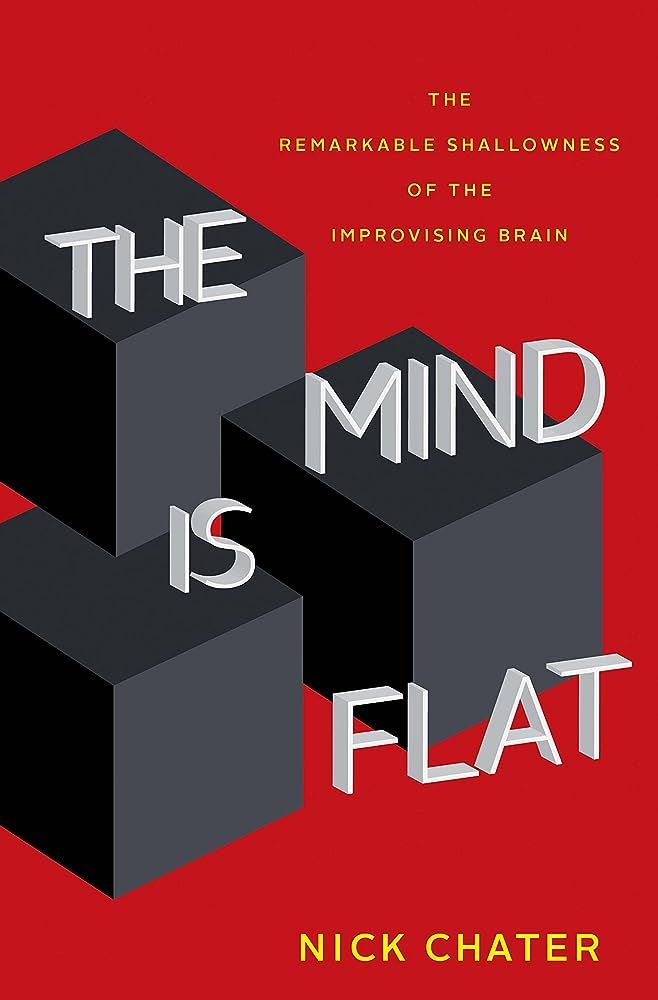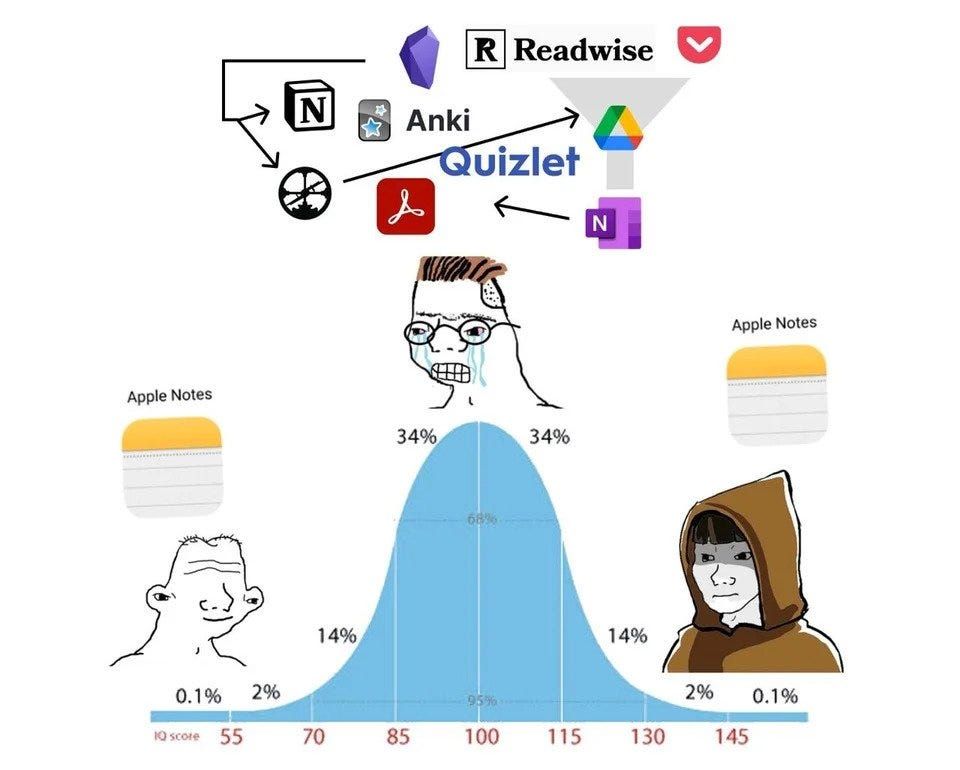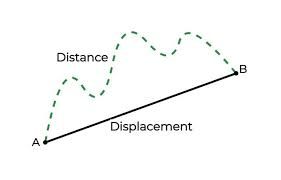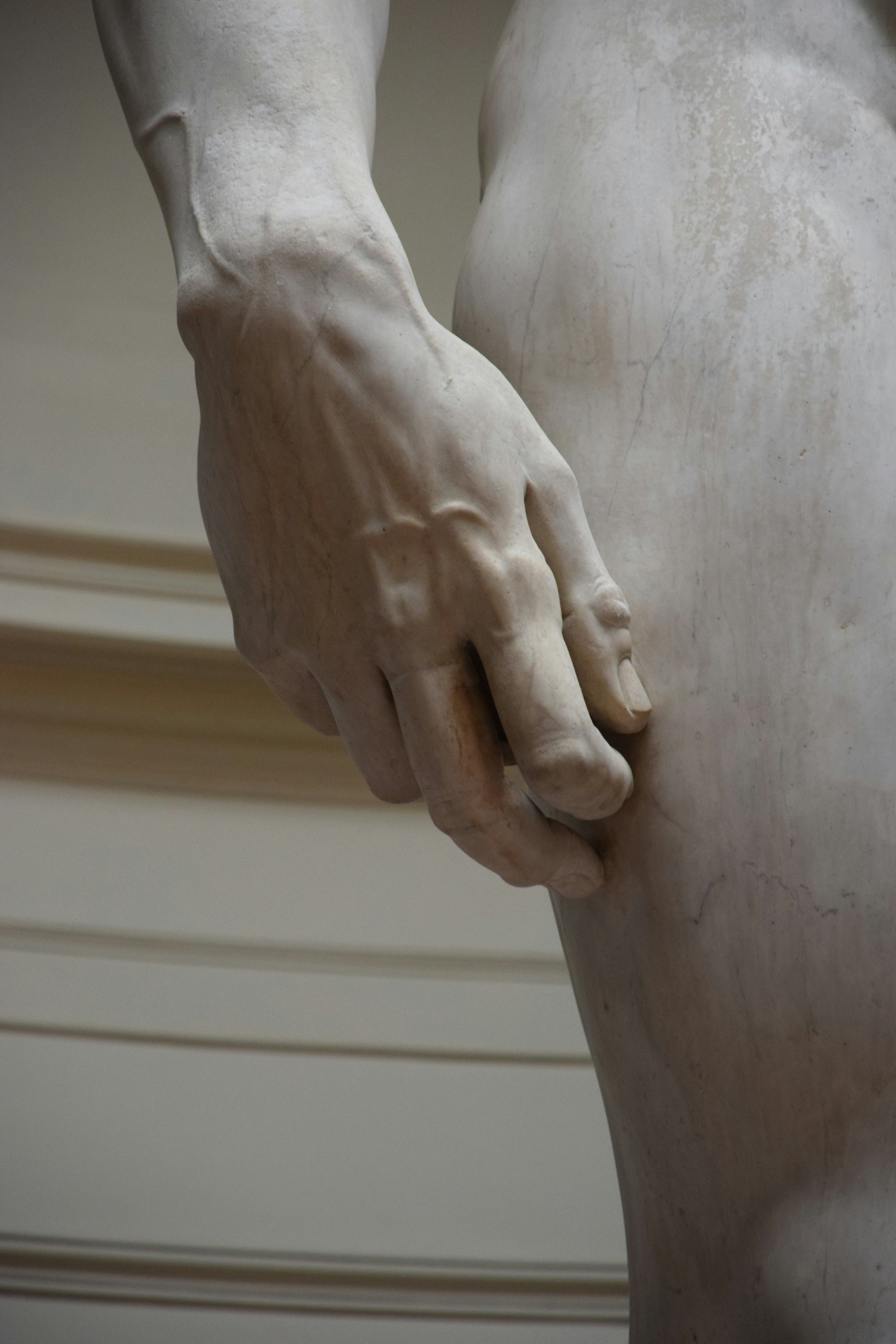The Sculptor’s Framework
• 7 min readIs there depth and complexity our inner selves, or are we shallow?
In The Mind is Flat, Nick Chater argues the latter. Perhaps we are akin to low-grade LLMs predicting the next word. And perhaps the self is an illusion.
But even illusions can be useful. The imagined self can be seen as a set of habits and thought patterns (you are your actions, your actions are your thoughts). And we can consciously inculcate habits and groove thought patterns. The sculptor sculpts himself.

A friend asked me an interesting question. If we are not a static self, but a moving flow, a process, how would you characterize that change overtime?
I think we flow toward creating purpose. In this piece, I'll offer the framework I used to answer that question for myself.
The Five P's of Purpose
- Principles: choosing the traits that make up our person.
- Patterns: recognizing the most impactful blind spots–the ones that recur.
- Partners: reflecting on the relationships that propel us from one stage of life to the next.
- Places: moving means moving forward.
- Production: meaning is being connected to something that lives on after you're gone.
Principles
From Bridgewater, I learned many things, but have had to forget, relearn, and reinforce the most powerful one: just writing things down. I am a big fan of writing down principles:

It may be in a notebook or Apple Notes, but words are powerful. Writing is sculpting. Etching words on the page tattoos principles on the brain.

I think there are two groups of principles: one observed, and one aspirational.
What are your values? The mind goes blank: it's hard to be complete and authentic on command. One process I've found is to write down observations on how you react to events, what kinds of people resonate, which moments ring true; from there, you can write down the principles that make up your own self.
Charlie Munger's exercise for aspirational principles is to first think of those in your peer group who will be the most successful. Then, write down which of their traits contribute the most to that predicted success. We notice that those traits are not purely God-given and often, we can develop those traits within ourselves. For myself, that which I admire is some mix of courage, discipline, risk-taking, honesty, and integrity.
I will give you two examples. When I was in college, I visited the office of a trading firm and found myself in Q&A with a trader. He made a mistake recently, he said, and lost something like thirteen million dollars in about two seconds. He was very serious, paused, and said quietly–more to himself than anyone else–"That will never happen again." He did not say "I'll try my best to not have that happen again." He did not say "mistakes were made." He carved out a line for himself. There was steel behind it. That is admirable.
The second example is a recent one. In a coworker and friend of mine, I saw several times where he was faced with a choice between the right thing and an advantageous thing. And he made a hard choice radically simpler. "I don't do that." He did not say "maybe if I were paid more, I would do that," or "I don't think that's a good idea." I don't do that. I am not the kind of person who does that kind thing. That is admirable.
I was recently faced with a hard choice that included leaving a significant amount of money on the table. And I replayed those moments for myself where people acted in ways I admired. And that made the decision so, so easy. Because I want to admire myself, I don't do certain things. That is not who I am. That is my line.
Yes, I am not perfect. And these are easy to say, hard to do. Especially when there is money involved. But it is worth writing down because in the moment, it is difficult to remember that which anchors ourselves to our values.
Patterns
The difference between problems and patterns is that problems go away.
Patterns are often driven by a fundamental misunderstanding of ourselves or a misunderstanding of how the world works. And it is easily exploitable precisely because it is our blind spot.
I cannot say too much more about this without sounding trite. But we all have recurrent patterns in actions we take, words we say, people we bring in. It is worth tapping into outside perspective to distill what those might be in ourselves.
Partners
Are there good people and bad people? I've vacillated on this question over the years, but I think there are. Yes, the line between good and bad is not between people, but runs through every human heart. Yes, people act differently in different circumstances. And in the face of life and death, by and large, people will cave to necessity over principles.
But there is also a synthesis of how people behave in the vast majority of scenarios. That is where I think we can draw that line between good people and bad people.
But perhaps the most useful distinction is between good and bad people for you. The best relationships are ones that give you energy. Manage your energy, not your time. Distance yourself from energy drainers and get close to energy gainers. It's not business, it's personal.
My people are who I've chosen. They are people I trust and I can give energy to them. That is my circle and my tribe.
Some people are best for a particular phase of your life. It is hard for me to process that. I fundamentally believe that when someone enters your life, especially on more impactful relationships, there's something there forever. But I remind myself the best songs are good not because they go on forever. There is a rhythm. A variety. And they end.
But there are real "forever relationships." These are people you can cheer on and grow with. But the trick here is not to go out looking for them. That kills the magic. The magic is in the obliqueness. These are your partners. You find them through action, building, moving.
We're just trying to find the great partners for us. And the best way to find a great partner is to deserve one.
Places
Sometimes, closing doors can open new doors. Other times, new doors open doors.
Distance matters more than displacement. You can end up at your same hometown. But traveling that red dirt road is how you grow up. The journey is the destination.

Moving has costs. Ostensibly, the highest expected-value choice is often to stay put. Plenty of my classmates did just that.
But in rites of passage–Native American vision quests and Aboriginal walkabouts–there is always movement, lots of it. Boys are thrust into the wilderness. The transformation happens in a new place. Exploring the world is a means to find new worlds within yourself. The boys come back to the village as men.
I have been fortunate in this respect. I grew up in Silicon Valley, studied in small-town Illinois. Worked in Chicago. Did research in rural India. Refugee settlements in Africa. Slums in Argentina. Lived and worked in bucolic Connecticut. Somewhere in the middle, my entire apartment building got flooded. So I moved back to NYC. Then California. A couple years ago, I relocated to Singapore. And now I'm moving again.
Each new place brought new partners, patterns, principles. My friends are refugees. Bureaucrats. CEOs. I found people I liked and found people I loved. I found partners.
For men in particular, I think one guiding principle when young is to be interesting. If you're not, you can become interesting. Travel, see new places, meet new people, read and say dangerous things. The value of this compounds, and it pays off.
Production
[Meaning] is the sense that one’s life makes sense in a way that has depth or realness because it connects one to something larger than oneself that has a value and a reality beyond one’s egocentric concerns and individual existence. This connection makes life worth living in the face of the frustrations, failures, suffering and sorrows that reliably assail human lives. – John Vervaeke
I am the happiest when I lose track of time. I rarely regret creating something. Part of the sculptor's framework is, of course, actually sculpting. Flowing through time and into your work. You're chiseling away all the bits that aren't art. But in subtracting, you are adding to your own experience.
Building is a superpower. But it has to be tangible. Showable. You want to be able to point to something and say, "I made that." I made a book happen, recently. That is a good feeling.
Dive into a new field. Make something that makes sense of the world. The very act of sense-making makes meaning.
The Sixth P: What's the Point?
Perhaps our minds are not as deep as we would like to believe. But we can add texture. We can snip parts we don't like and slap on traits we admire in others. We can find people who pull us toward a north star.
Maybe the question of finding the "meaning of life" is a bad question. Maybe the right question is: what do you do that creates meaning? What trees are you planting that provide shade to people you will never meet? How do you make sense of a world that is often senseless? And how do you sculpt the sculptor?
